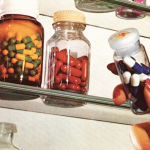The pharmacy business lobby is being shamelessly opportunistic in exploiting the COVID-19 pandemic, doctors’ groups say
The Pharmacy Guild has been accused of exploiting COVID-19 to acquire more power, days after pharmacists’ remit on vaccines was expanded in Queensland and NSW.
Guild vice president Trent Twomey told Nine newspapers the pandemic was “a good catalyst” for a discussion on allowing community pharmacies to dispense more medications without a prescription, such as the pill, asthma preventers, antihypertensives and antibiotics for urinary tract infections.
“The last thing you want to do in a pandemic is create a cluster where sick people congregate with people with the virus,” Mr Twomey said. “Frankly, state and federal governments can’t afford not to utilise the pharmacy workforce.”
RACGP president Dr Harry Nespolon reacted: “This is a cynical ploy from the Pharmacy Guild to exploit COVID-19 to achieve long sought after changes that will hand greater power to retail pharmacies.”
Turning the guild’s logic back on itself, Dr Nespolon said: “If the Pharmacy Guild was serious about helping Australians during a pandemic, they would stop their opposition to an easing of dispensing restrictions. This would enable people to access two-month supplies of commonly prescribed medicines.”
Sixty-day dispensing, opposed by the Guild and rejected by both major parties before last year’s federal election, is reportedly up for discussion during negotiations for the 7th Community Pharmacy Agreement.
“Unwell patients do not want to have to visit a pharmacy, where they will be surrounded by other unwell patients, more often than is absolutely necessary,” Dr Nespolon continued.
“Perhaps it’s time that we look to the ‘Amazon model’ of allowing delivery to a patient’s home, again significantly decreasing the risk of exposure.”
AMA president Dr Tony Bartone said: “While the medical profession is getting on with trying to deal with the effects and help the Australian public to prepare for the oncoming epidemic, I’m really troubled by the Pharmacy Guild trying to expand the scope of their business.”
Late last month Queensland’s Chief Health Officer Dr Jeannette Young announced that pharmacists would now be able to give a raft of vaccinations – MMR, hepatitis A, H. influenzae type B, cholera, diphtheria, tetanus and pertussis (dTpa), diphtheria, tetanus, pertussis and poliomyelitis (dTpaIPV), meningococcal ACWY and polio – to people aged at least 16. They will also be able to give the influenza vaccine to anyone aged 10 and over.
NSW soon followed suit in lowering the age from 16 to 10 for pharmacy flu shots.
Mr Twomey said the Queensland announcement was not enough.
“A comprehensive travel medicines program needs to include all travel vaccinations to 10 years of age [sic], relevant antibiotics and antimalarials and other agents for conditions such as altitude illness, venous thromboembolism and jet lag,” Pharmacy Daily quoted him as saying. “Our strategic advocacy has got us to this point, but there is more work to be done.”
Dr Nespolon said travel vaccinations were “a lot more complicated than just injecting people” and pharmacists had a commercial conflict of interest.
“It’s not just doing an immunisation,” he told TMR. “You’ve actually got to work out which immunisations [are appropriate]. One of the major concerns about travel vaccinations is that the drive for the pharmacists to sell will overwhelm good advice.
“And do parents really want to have their 10-year-olds running around a pharmacy being immunised? They’d be much safer in inside a general practice and they will get a better holistic service there than they would at the front counter of a pharmacy.”





